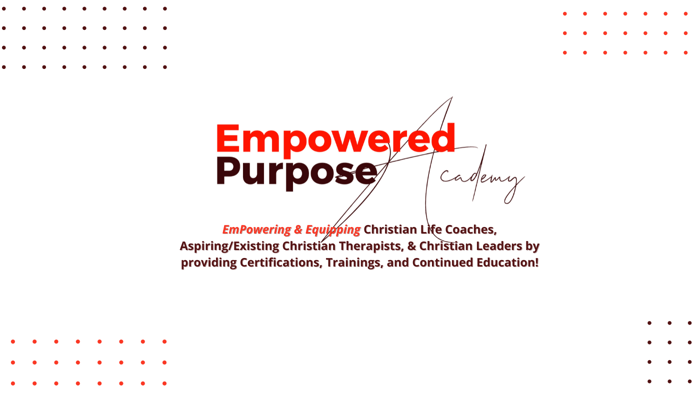Table of Contents
- How Christian Life Coaches Can Overcome Imposter Syndrome
- 🕊️ Introduction: From Doubt to Divine Confidence
- 1. What Imposter Syndrome Looks Like for Christian Life Coaches
- 2. Why Christian Coaches Are Particularly Vulnerable
- 3. The Biblical Foundation: Who You Are in Christ
- 4. Practical Steps to Overcome Imposter Syndrome and Coach with Confidence
- 5. Coaching Others While You Still Feel in Progress
- 6. Key Scriptures to Anchor Your Confidence
- 7. Final Encouragement: Move Forward Boldly
- FAQs
How Christian Life Coaches Can Overcome Imposter Syndrome
How Christian Life Coaches Can Overcome Imposter Syndrome
🕊️ Introduction: From Doubt to Divine Confidence
As a Christian life coach, you have answered a sacred call. You are not just offering advice; you are walking with people on the pathway of transformation, purpose, and healing. Yet even in a faith-driven role like this, one of the biggest internal barriers shows up: impostor syndrome. You may wonder, “Who am I to coach others?”, “What if they find out I do not really know what I am doing?”, or “I am just lucky they signed up; soon someone will see through me.”
These thoughts are more common than you might think, even among Christian life coaches and ministry leaders. But here is the good news: your identity is anchored in Christ, not your performance. Your calling is validated not by your perfection but by God’s assignment and your obedience. In this article, we will explore how you can recognize imposter syndrome, address it biblically, and rise into confident coaching so you lead authentically, powerfully, and in the freedom Christ offers.
1. What Imposter Syndrome Looks Like for Christian Life Coaches
Imposter syndrome is the persistent fear that you are not as competent or qualified as others believe you to be and that sooner or later, you will be found out.
If you are a Christian life coach, here are some specific indicators:
You launch a new coaching program or welcome new clients and immediately feel like you do not know enough.
You dismiss your wins, attributing them to luck or timing rather than acknowledging your God-given skills.
You delay marketing or being visible because you believe you must first get it all together.
You compare your journey with other coaches and feel less than because you have not achieved the same milestones.
You believe that being humble means downplaying your expertise, which turns into self-doubt and silence rather than service.
The spiritual layer adds complexity. You might believe that because you have flaws, you are disqualified from coaching others or that you must wait until you are perfect before you lead. Recognizing these signs is the first step. When you see them, you can begin to respond differently.
2. Why Christian Coaches Are Particularly Vulnerable
There are unique factors in the faith-coaching world that make imposter syndrome more likely. Here are a few to consider:
A. Calling meets qualification tension
When God gives you a vision, the mission seems massive. But your experience may say, “I am not ready.” That tension creeps in: Why would God use me?
B. Humility versus self-doubt confusion
Faith invites humility as seen in Philippians 2:3, “Let nothing be done through strife or vainglory.” But humility can get twisted into, “I should not speak up,” or “I am not ready yet.” When humility becomes self-denial, your gift remains hidden.
C. Comparison culture
In the coaching industry, it is tempting to compare newsletters, launch numbers, or expert status. But for Christian life coaches, this comparison often triggers spiritual guilt: Am I doing it God’s way? That extra layer increases self-doubt.
D. Spiritual warfare dimension
Some Christian writers consider imposter syndrome not just a mindset but a tactic the enemy uses to keep you silent and stuck. Understanding these dynamics helps you realize your struggle is normal. It is not a signal you should quit but a sign you are stepping into something significant.
3. The Biblical Foundation: Who You Are in Christ
Before diving into strategies, anchor yourself in these truths:
Identity before performance. Ephesians 2:10 reminds us: “For we are his workmanship, created in Christ Jesus for good works, which God prepared beforehand.” Your qualification rests in the One who called you.
Grace empowers, not guilt. The gospel flips the motive. You are not striving for approval; you are loved, chosen, and equipped.
You are called, not coincidentally placed. When you feel like a fraud, the truth is that you are exactly where God wants you, and you have been prepared for the assignment.
Your sufficiency comes from God. As 2 Corinthians 3:5 says: “Not that we are sufficient of ourselves.” The strength is from the Lord.
By resting in these truths, you shift from “I must prove I am ready” to “I am ready because He is ready in me.”
4. Practical Steps to Overcome Imposter Syndrome and Coach with Confidence
Here are actionable steps designed specifically for Christian life coaches:
Step 1: Normalize the experience.
Recognize that hearing the “I do not belong” voice does not mean you are a fraud; it means you are stretching. Realizing you are not alone removes shame.
Step 2: Name the lies.
Ask yourself: What is the specific thought I am believing? For example, “I am not spiritual enough to coach others,” or “Someone else does this better than me.” Once named, you can replace it with truth.
Step 3: Collect the evidence.
Create a “truth file” of wins, testimonials, times you have served, and moments you sensed God’s leading. When imposter thoughts whisper, you have tangible reminders of God’s faithfulness.
Step 4: Reframe your mindset.
Ask: Would I say this to a friend who is stepping into coaching? Use scripture-based affirmations like “I am God’s masterpiece” or “God has called and equipped me.” Recognize that the presence of doubt often signals growth, not failure.
Step 5: Root your coaching in Christ first.
Your confidence comes from your relationship with Christ, not from your credentials. Stay connected through prayer, scripture, and reflection. When identity is clear, performance anxiety softens.
Step 6: Take aligned action even when you do not feel ready.
Waiting until you feel ready often means you will never start. Faith moves before the feeling catches up. Confidence often comes after the leap.
Step 7: Surround yourself with a supportive community.
Find mentors and fellow Christian life coaches who will speak truth into your life. The enemy uses isolation and comparison, but community counters that with encouragement and truth.
Step 8: Define your coaching lane.
You do not have to be the most experienced coach in the world. You need to be the coach for someone who needs what you have learned. That might mean focusing on clients who are a few steps behind you.
Step 9: Communicate your value humbly and clearly.
Your message does not need hype; it needs clarity. Share your story, how God brought you to this place, and how you serve others. Speak to your calling rather than comparing to others.
Step 10: Reflect regularly.
Take time each month or quarter to reflect: What wins happened? What did I learn? Where did I feel fear and how did I respond? How did God show up? Reflection builds resilience and reminds you that growth is real.
5. Coaching Others While You Still Feel in Progress
One of the biggest blocks for Christian life coaches is believing you must be fully ready before you coach others. But here is the truth: you can coach while you are growing. In fact, that can be a strength. When you lead with transparency, authenticity, and humility, you connect deeply.
Consider the following:
Your vulnerability becomes a bridge, not a barrier. When you share your journey honestly, clients appreciate the authenticity rather than expect perfection.
You do not need to have all the answers; just walk alongside clients guided by Christ.
Focus on the next step rather than the entire mountain. You may not have scaled every peak, but you can help someone climb the foothills.
Be clear about your target audience. If you are early in your coaching journey, serve those who are just beginning and build from where you are.
When you coach from a place of obedience rather than perfection, you serve in freedom, and that freedom invites your clients to step into theirs.
6. Key Scriptures to Anchor Your Confidence
Here are some powerful scriptures to meditate on when the “I am not enough” voice shows up:
Ephesians 2:10 – “For we are his workmanship, created in Christ Jesus for good works, which God prepared beforehand.”
2 Timothy 1:7 – “For God has not given us a spirit of fear, but of power and of love and of a sound mind.”
Joshua 1:9 – “Have I not commanded you? Be strong and courageous. The Lord your God will be with you wherever you go.”
Psalm 139:13-14 – “For you created my inmost being; you knit me together in my mother’s womb. I praise you because I am fearfully and wonderfully made.”
Let these truths sink deep into your heart. Whenever imposter thoughts rise, pause and bring these verses to the forefront.
7. Final Encouragement: Move Forward Boldly
Christian life coaches around the world are rising with renewed confidence, learning to trust their divine assignment and lead from a place of peace, faith, and excellence.
Dear coach, the fact that you are reading this means you have been called and are being prepared. The voice of doubt does not mean you are disqualified; it means you are stretching into what God has designed for you.
Feel the fear? Good. Step anyway.
Hear the voice saying you are not enough? Remind yourself that you are enough in Christ. Worried no one else will believe in you? Believe in the One who sent you and let Him commission you into service.
Your clients are not waiting for a perfect coach. They are waiting for a faithful one. Someone who knows the journey, has a heart for transformation, and is anchored in Christ. That is you.
Take the next confident step. Schedule a clarity call, send that newsletter, launch that small group, or offer that discovery session. You may feel like a beginner, but you are not playing beginner. You are walking in purpose.
✨ You were created, called, and equipped for this moment. Step into your assignment with courage, authenticity, and the assurance that He who began a good work in you will carry it on.
✨ Next Step for You
If you're ready to build a coaching practice rooted in both spiritual sensitivity and professional integrity, download my free guide: 📘 "Tools I Used to Launch and Scale a 5-Figure Christian Life Coaching Program."
This resource will help you navigate tricky situations, build a referral network, and grow in confidence as a Kingdom-minded professional.
Because when your calling is grounded in wisdom, your impact multiplies.
Let's walk this journey together anointed, equipped, and clear on who God has called us to be.

CLICK HERE FOR YOUR FREE GUIDE
FAQs
1. What causes imposter syndrome in Christian life coaches?
Imposter syndrome in Christian life coaches often stems from comparing themselves to others or doubting whether they’re truly called by God to coach. Many feel unworthy or underqualified. The truth is that God doesn’t call the qualified; He qualifies the called. Remember, your coaching gift is a ministry, not a performance. When you focus on serving through God’s strength instead of your own, confidence begins to grow.
2. How can Christian life coaches overcome self-doubt and fear?
Christian life coaches can overcome self-doubt by renewing their minds daily through prayer, Scripture, and affirmation of God’s promises. Journaling victories, seeking mentorship from other faith-based coaches, and celebrating small wins can help, too. Confidence comes when you stop questioning your worth and start trusting the One who gave you the vision.
3. Why is faith important for Christian life coaches who battle imposter syndrome?
Faith is foundational for Christian life coaches because it reminds them that their authority comes from God, not credentials alone. Faith allows you to coach from a place of peace rather than performance. When you rely on the Holy Spirit for guidance during sessions, you move beyond fear and into divine alignment with your calling.
4. What practical steps can Christian life coaches take to build confidence?
Christian life coaches can build confidence by setting clear coaching boundaries, continuing professional development, and grounding every session in prayer. Joining supportive Christian coaching communities also helps reaffirm your identity and calling. Confidence is not arrogance—it’s quiet assurance that you’re walking in obedience to God’s purpose.
5. Can Christian life coaches be Spirit-led and still remain professional?
Yes, Christian life coaches can absolutely be Spirit-led while maintaining professionalism. Being Spirit-led doesn’t mean ignoring structure, it means inviting the Holy Spirit into every part of your work. Professionalism ensures your coaching is ethical and effective, while being Spirit-led ensures it’s deeply transformative and aligned with God’s truth.







